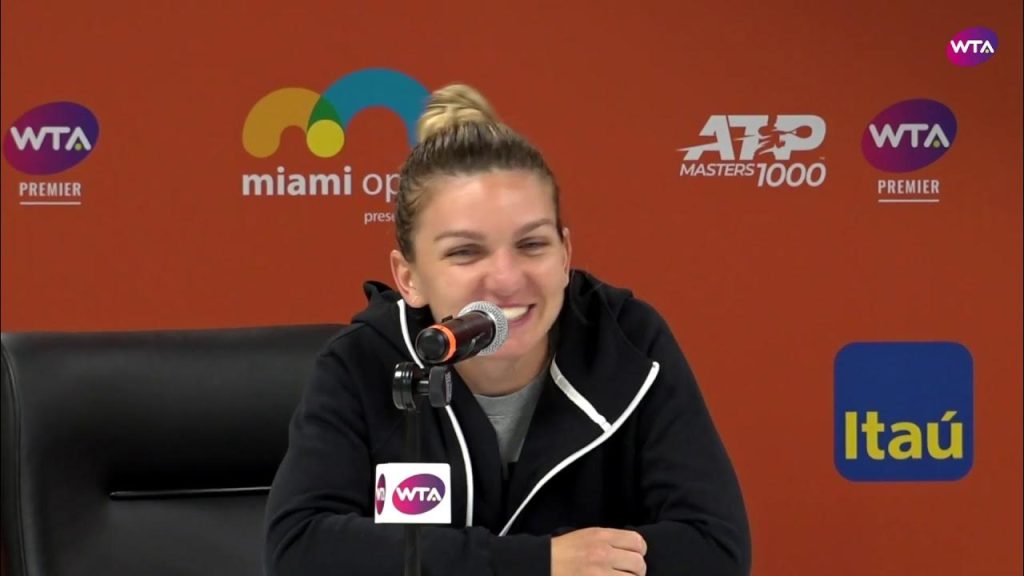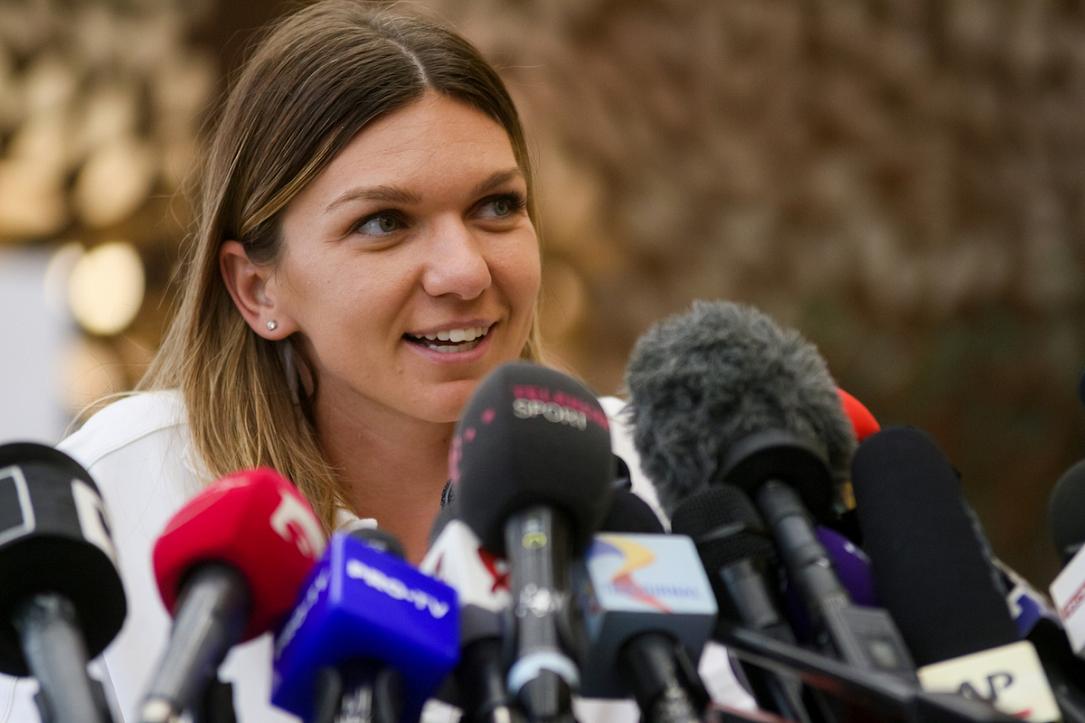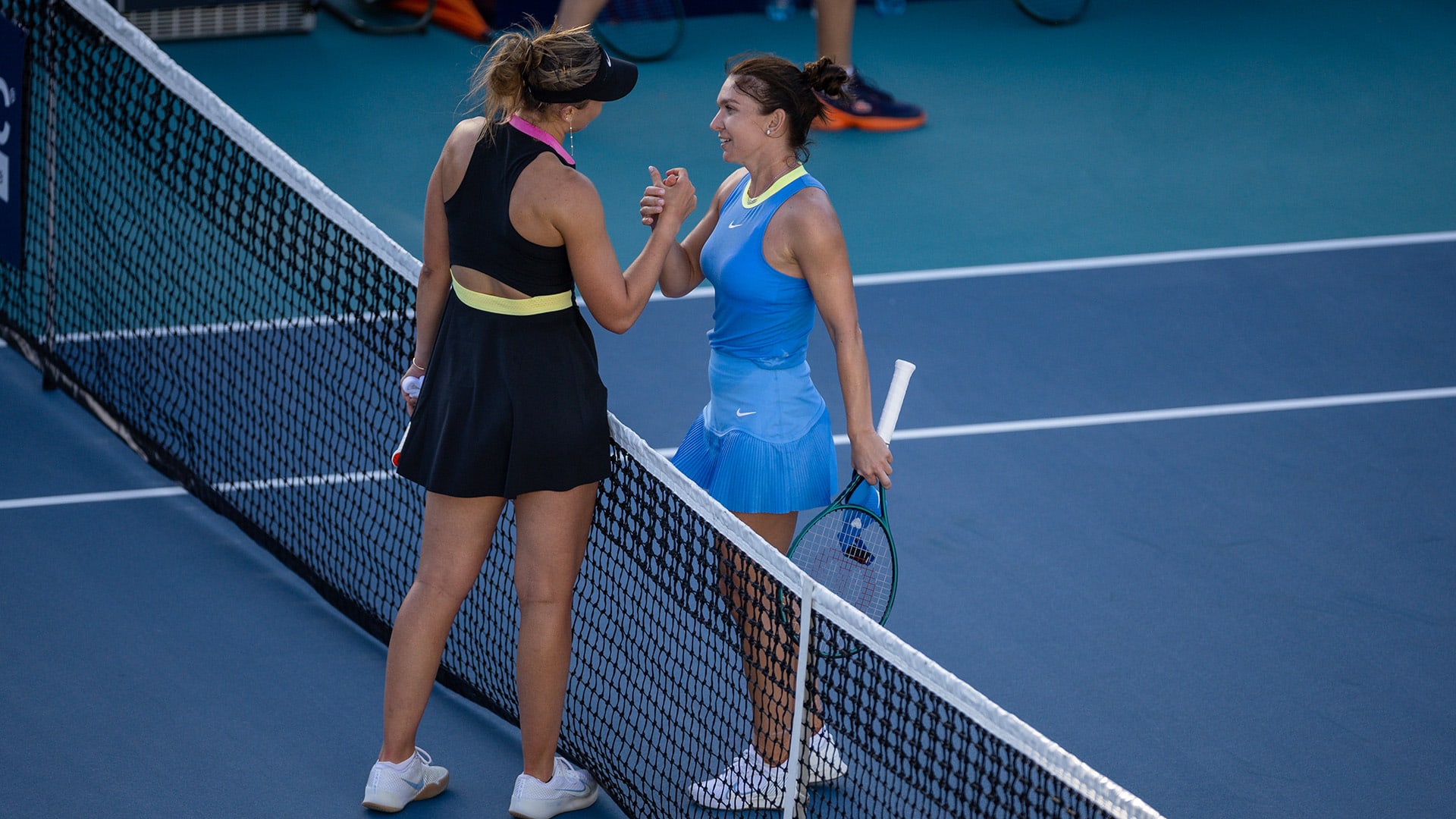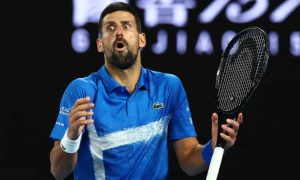
The Romanian also had some ominous advice for fellow players hoping to avoid facing the same fate: “Be worried about everything (you) eat and do.”
MIAMI, Fla.—Simona Halep has lifted Grand Slam trophies and scaled to the top of the WTA rankings during her tennis career. But on Tuesday afternoon at the Miami Open, her biggest win of all was simply stepping back on a tennis court once again.
As the familiar cheers of “Si-Mo-Na” and “Hai Simona!” rang out on Grandstand, Halep took the court for the first time in 18 months after serving out her doping violation ban. And despite the scoreboard reading 1-6, 6-4, 6-3 in favor of her first-round opponent Paula Badosa, for Halep, the moment felt like victory she won’t soon forget.
“Playing so well, feeling so well on court, feeling so well outside of the court with so many people that are very nice to me and giving me the love, I would say that this day is going to stay very special for me,” Halep told press after her defeat.
“Of course, I had many results in the past, big results. But here it’s something more than tennis, it’s something personal.”
Halep has been on an emotional roller coaster since October 2022, when it was announced by the International Tennis Integrity Agency (ITIA) that she had tested positive for roxadustat—a prohibited substance well-known in professional cycling—with an additional charge added later also citing anomalies in her biological passport.
The Romanian emphatically asserted her innocence, and fought to make her case to the ITIA—who took nearly a year to eventually hand her a four-year ban from the sport that Halep said would have meant “probably the end of the career.”
https://www.instagram.com/simonahalep/?utm_source=ig_embed&ig_rid=99321079-3be3-4219-9ec4-d3d89236a7fd
Halep appealed, taking her case all the way to the Court of Arbitration for Sport (CAS), who then reduced her sentence to just nine months and threw out her second charge—making her immediately eligible to resume her career after a long 18 months. She took the court on Tuesday at the Hard Rock Stadium after gladly accepting a wild card, which was personally held for her by tournament director James Blake.
“Thank you to the tournament for giving me the wild card and have the possibility to play in such a big tournament,” she said. “It was great to be back.”
But while Halep and her fervent fanbase were thrilled with the outcome, on social media and among some players the reaction to the news of her wild card was mixed. Speaking to press earlier in the day, former world No. 1 Caroline Wozniacki was the most critical as she questioned the tournament’s decision to hand any player a wild card after they’ve been banned for doping.
“This is not directly at Simona, but if someone purposely cheats, if someone has tested positive for doping… I understand why a tournament wants a big star in the tournament, but it’s my personal belief, and it’s not a knock on anyone, but it’s my personal belief that I don’t think people should be awarded wild cards afterwards,” Wozniacki said.

Halep, who has maintained her innocence from the start, dismissed the criticism as she doubled down citing the facts of her case. Her positive test was linked to a contaminated substance found in a supplement provided by her former coaching team helmed by Patrick Mouratoglou, who took responsibility for providing it to her.
CAS ultimately ruled that the former world No. 1 bore “no significant fault” for the anti-doping rule violation and threw out the charge related to her biological passport, partially exonerating her and clearing her to return to competition.
“I didn’t do anything wrong. I didn’t cheat. I didn’t dope. So it’s better if we read the decision from CAS that it was a contaminated supplement. It wasn’t doping. I never had something to do with doping. I never doped, so I’m not a cheater,” Halep said in response to Wozniacki’s comment.
“Only one person being negative about me is not that important because I have hundreds of people that giving me love, so I will take that.”
Currently without a WTA ranking, Halep will likely have to rely on wild cards as she continues her comeback in earnest during the European clay-court swing. As one of the most popular players among fans and a well-respected figure in the locker room, it seems likely the 32-year-old won’t have too much getting them. She’s clearly ready to shoulder any controversy the tournaments’ decision would generate, too.

But she had some ominous advice for other players who may not be so lucky to afford the best lawyers in sport to fight their cases and to have such vocal support from their fans: “Be worried.”
“They have to be worried about everything they eat and they do. Sometimes it can happen unexpected,” Halep warned. “It’s a stress for everybody. We have just to believe that something like (what) happened to me doesn’t happen to them, because it’s terrible.”
Sadly, another case like Halep’s seems to be increasingly inevitable: A study published just six months before Halep’s failed drug test found that nearly 30 percent of the dietary supplements analyzed contained performance-enhancing drugs (PEDs)—including anabolic steroids—which puts even the most diligent athletes at risk for unintentional doping.
“It has been a terrible period for me and very stressful emotionally,” Halep added. “The advice is just to check what they take and to be aware about everything.
“It’s tough to give advice, because I don’t wish anyone to go through what I went through.”





